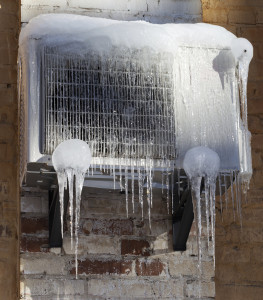 Heat pump freeze up is a common problem with HVAC units. The freeze up normally occurs when the coil of your heat pump receives a thick coating of ice built-up over it. A light coating of frost over the coils is normal, but a heavy ice coat will make the unit go into the defrost mode. And it will stay in that mode until the ice is melted down.
Heat pump freeze up is a common problem with HVAC units. The freeze up normally occurs when the coil of your heat pump receives a thick coating of ice built-up over it. A light coating of frost over the coils is normal, but a heavy ice coat will make the unit go into the defrost mode. And it will stay in that mode until the ice is melted down.
If you are facing this problem too regularly, you may be certain that your HVAC unit needs an expert inspection. However, before you make an appointment with a HVAC professional, there are a few things that you can try yourself and see if the issue gets solved. Normally, the freeze up occurs when the airflow across the coil gets restricted. This happens due to a number of reasons and all of them do not have to be of technical or malfunctioning nature. Often, it will be seen that blocked ducts, or clogged and dirty filters are causing this restriction.
So, if your air filters have not been changed in some time, the first thing you can do is replace your air filters. There is no harm in this since even if there is some other problem, your air filters would have needed a replacement at any rate. Next, you must check that your supply and return ducts are not getting obstructed by any objects in the room, such as furniture, boxes, clothing, etc. A restricted airflow may also be caused by an accumulation of grass, leaves, or snow over your outdoor unit. So, take care to keep your outdoor unit clean all through the season. If the concrete slab on which the unit is set shifts or settles, you will need to reset the unit in place.
The freeze up may also be the result of something which is not of a technical nature at all. For example, dripping waters on the unit from overflowing gutters etc. may also cause a freeze up. However, if none of the above is the cause, the problem is of a technical nature and only a professional would be able to help you in such a situation.
For more articles on the subject and other useful information on how to keep your heating and cooling systems running efficiently, follow us here on this blog.
